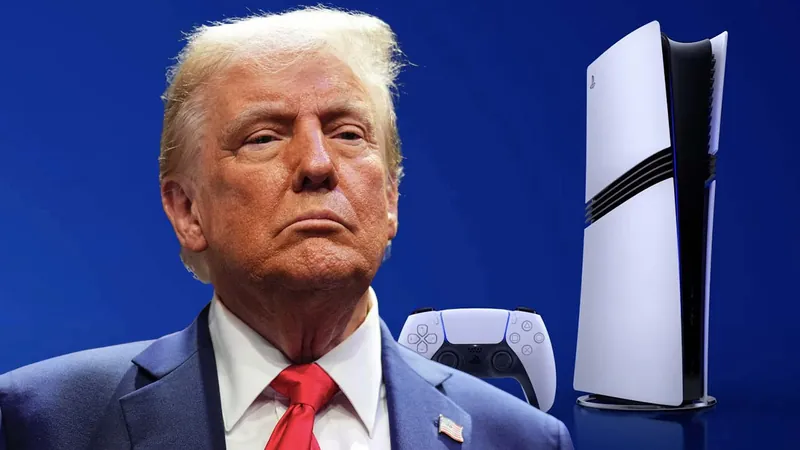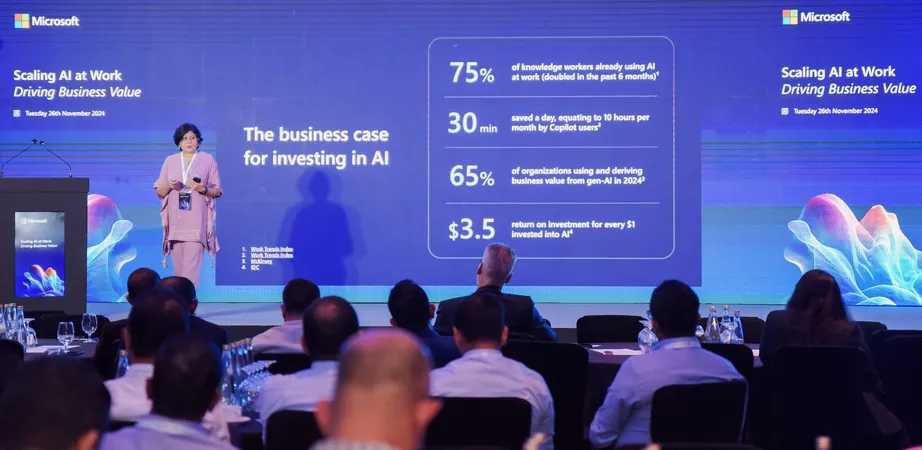
The Looming Threat of Trump’s Tariffs: Are Physical Video Games Facing Extinction?
2024-11-28
Author: Emily
As Donald Trump prepares for a potential return to the presidency, the implications for the video game industry could be seismic. Experts warn that proposed tariffs, particularly on imports from China, might hasten the decline of physical video games—a trend that's already been gaining momentum.
With Trump’s plan to impose a staggering 60% tariff on certain Chinese imports, the gaming world is buzzing with concern. This would significantly impact U.S. consumers, driving up the prices of consoles and fundamentally altering gaming consumption habits. As highlighted by the Consumer Technology Association, the new tariffs could lead to an estimated 40% increase in console prices.
Although negotiations may lead to a revised tariff rate of around 35%, the shadow of uncertainty looms large. During Trump’s first term, several major companies, including Microsoft, Sony, and Nintendo, managed to secure exemptions from similar tariffs. However, there’s no guarantee this time around. Industry analysts are keenly observing how these developments might unfold.
Joost van Dreunen, a business professor at NYU, suggests that if the tariffs go into effect, they could trigger a seismic shift in the gaming landscape. He forecasts a decline in console sales to levels reminiscent of the early 2000s, as the financial burden on consumers compels them to seek alternatives—like digital downloads and cloud gaming.
Van Dreunen points out a historical pattern where economic downturns have historically sparked innovation: “Just as the video game crash of 1983 and the 2008 recession pushed the industry toward new distribution models, these tariffs may accelerate the move towards cloud gaming and streaming services, reimagining how we access and enjoy content.”
Moreover, analyst Mat Piscatella warns that rising prices on physical games could inadvertently hike digital game prices as well, creating a troubling parity. Piscatella observed, “If physical game prices rise due to import taxes, it’s likely that digital titles would follow to maintain balance in the marketplace. Ultimately, this could lead to the abandonment of physical copies altogether—a concerning prospect for traditional gamers.”
Yet, not everyone is ready to transition to streaming services. Many gamers in rural areas still grapple with inadequate internet infrastructure, making cloud gaming a less viable option compared to conventional console gaming.
The repercussions of these tariff measures could profoundly affect the upcoming generation of gaming consoles. Prohibitive pricing might push consumers toward all-digital models, compelling manufacturers to phase out physical disc drives entirely. This shift could alter the very fabric of gaming culture as we know it.
As the date for Trump’s official return on January 20 draws near, questions about the future of tariffs remain rife. If enacted, these tariffs not only threaten to reshape the U.S. gaming market but could also inflate prices worldwide as companies strive to compensate for rising costs.
In a world where digital is becoming increasingly dominant, are physical video games on the brink of extinction? With unprecedented shifts potentially ahead, gamers and industry stakeholders alike are holding their breath, wondering what the future holds.









 Brasil (PT)
Brasil (PT)
 Canada (EN)
Canada (EN)
 Chile (ES)
Chile (ES)
 España (ES)
España (ES)
 France (FR)
France (FR)
 Hong Kong (EN)
Hong Kong (EN)
 Italia (IT)
Italia (IT)
 日本 (JA)
日本 (JA)
 Magyarország (HU)
Magyarország (HU)
 Norge (NO)
Norge (NO)
 Polska (PL)
Polska (PL)
 Schweiz (DE)
Schweiz (DE)
 Singapore (EN)
Singapore (EN)
 Sverige (SV)
Sverige (SV)
 Suomi (FI)
Suomi (FI)
 Türkiye (TR)
Türkiye (TR)